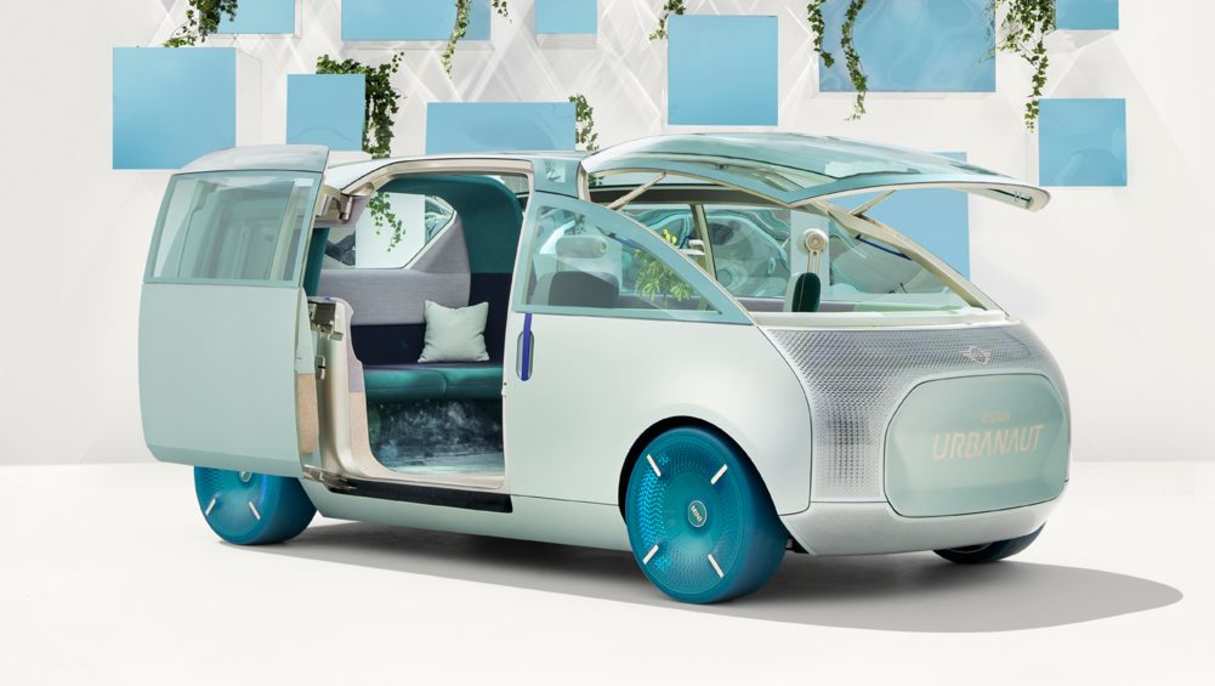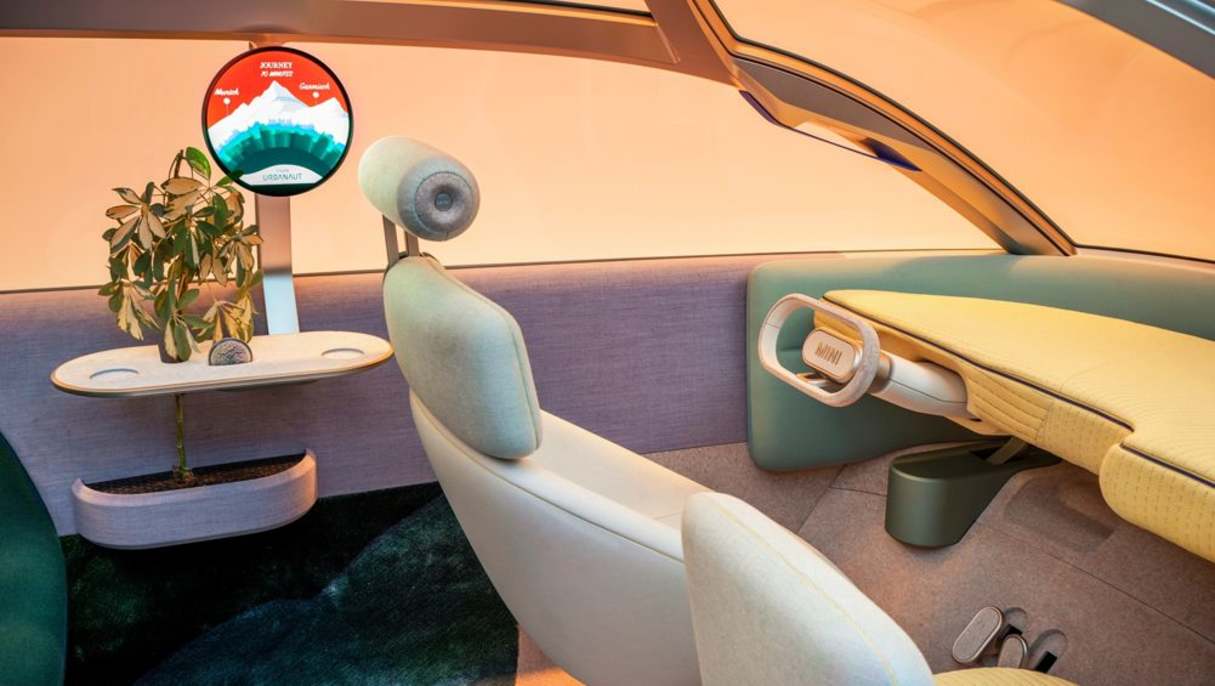The Mini brand is known for many things - the diminutive size of its models, the so-called ‘go-kart feel’ of the driving dynamics, and the unmistakable design.
But what if all of these elements were flipped on their heads?
According to Mini’s head of design, Oliver Heilmer, any and all of these things are possible.
When asked by CarsGuide if Mini could one day completely change its iconic design, Mr Heilmer said, arguably, the brand already has with the Urbanaut concept.
Mini revealed the Urbanaut concept in 2020 that provided a glimpse at the BMW-owned brand’s future. The electric MPV-like concept features a flexible cabin that allows occupants to use it as a lounge, a vehicle or possibly even somewhere to sleep.
Mr Heilmer said Mini traditionalists were confronted by the Urbanaut design, with some asking “what the hell, what do you want to do with a van?”
On the flipside, he said the concept received a hugely positive reception when it was shown at Berlin’s Greentech festival last year.
Mr Heilmer said that could well mean Mini takes two different design directions in the future, depending on the models, and that would be led by driverless vehicle tech.

“I'm not able to foresee when it's happening. But at that time when fully automated cars are a commodity, then it's flipping. I’m pretty sure. Because then you don't care about driving dynamics anymore. Nothing.
“Then the question is, what are you going to do in the time you’re spending in the car when you are not focused on driving? And this is the idea behind the Urbanaut, that it's the space where you're spending your time, not sitting behind a steering wheel, looking in that direction. And then maybe that's the chance where it's flipping.”
However, he said Mini’s reputation as a driver’s car would be retained in this possible two-pronged design strategy.
“But as long as it's driving - and I personally love driving a lot really - as long as this is the main path, it's good we develop the brand as it is.
“And what I believe as well, even if it's flipping, there will remain something, as long as it's allowed, that keeps you to the roots somehow.
“So, that's two directions we are feeling within a design team as well. We understood that, oh wow, this is really drifting away from each other and both could happen in the brand.”

A fully autonomous Mini will still be a way off, with the head of the Mini brand, Stefanie Wurst, saying in a separate interview that full self-driving tech will not be part of the coming new family of models that will start to roll out from next year and expand in 2024.
“I think it's also not the predominant thing you would ask from a Mini in my opinion. It’s more for another type of car we also have in the (BMW) Group's portfolio but I think for a Mini it's not something we have to have in 2024,” she said at the Mini Aceman concept reveal last month.
Mini announced in 2021 that it would stop using leather in its cars in a bid to be more sustainable and transparent with sourcing. The Aceman concept has no leather and features no chrome - another example of Mini’s focus on using fewer components made from animals or potentially unsustainable metals.
Mr Heilmer said the decision to drop leather was an easy one, and added that the company wants to become a leader when it comes to transparent sourcing of materials.
“For us, getting rid of leather, it's not news anymore. We are facing the next challenges. Where's the source for the recycled materials? What about natural materials, is there a chance in the future? What does it mean producing locally, do we have local sources of materials?
“All these questions are coming up. And we are discussing this on a group level anyway. But for me and for Stephanie, we see Mini as, let's say, as a strong pioneer within this group. Because we are smaller and we are maybe able to try out things faster.”





.jpg)

.jpg)


_0.jpg)
 (1).jpg)

.jpg)
.jpg)


.jpg)
.jpg)
_0.jpg)



_0.jpg)

.jpg)



.jpg)